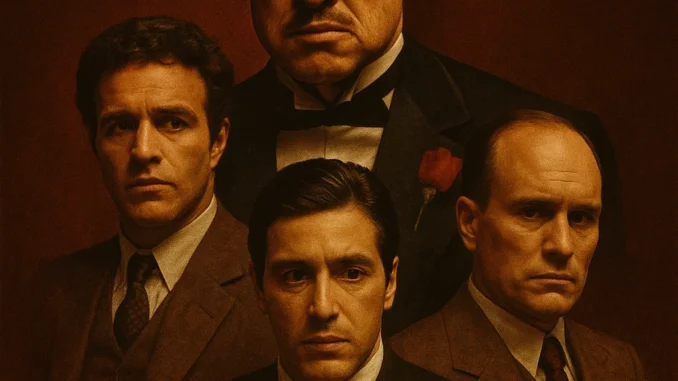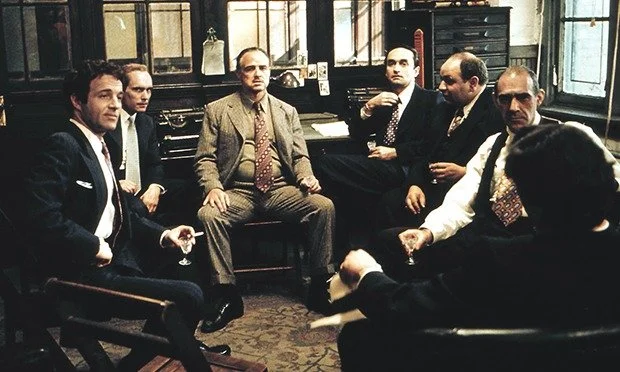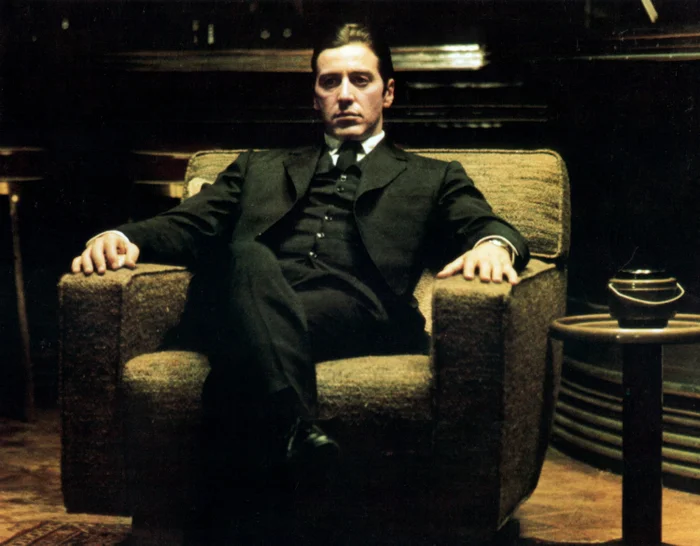
The Godfather is a timeless cinematic masterpiece, but the original novel is far from flawless. It’s hard to find a true film lover who wouldn’t place The Godfather among the greatest movies of all time. Released in 1972, Francis Ford Coppola’s triumph not only revolutionized storytelling on the big screen but also elevated the gangster genre—once dismissed as pulp—into the realm of Shakespearean tragedy.
Too Many Stories in the Novel
Author Mario Puzo was no ordinary writer. He co-wrote the screenplay for the film and won the 1973 Academy Award for Best Adapted Screenplay. Yet, his novel The Godfather (1969), while a bestseller, has never been considered high literature.
The problem? It’s overflowing with subplots—many of which add little to the core story.

Take, for instance, Johnny Fontane, the crooner-turned-Hollywood actor. In the book, his endless parties and scandalous affairs derail the pacing, distracting from the heart of the Corleone saga. In the film, however, he’s reduced to a brief but memorable appearance—thanks to Coppola and Puzo’s judicious cuts.
Even more puzzling is the book’s detour into Sonny Corleone’s affair with Lucy Mancini. The novel goes so far as to describe a pelvic surgery subplot that allows Lucy to sleep with other men after Sonny’s death. The film wisely scrapped this storyline entirely—and we should all thank Coppola for that.
The Film Surpasses the Novel
No one denies the novel’s importance. But through careful selection and refinement, Coppola and Puzo transformed what was a “messy yet entertaining” book into a tightly structured, emotionally powerful, and darkly poetic film.
They stripped away the excess to focus on Michael’s transformation—from reluctant outsider to ruthless, cold-blooded successor to the Corleone empire. Supporting characters like Luca Brasi and Captain McCluskey remain, but only in service of the main arc, never diluting its impact.

That’s why the film endures. It isn’t just a mafia tale—it’s a tragedy about power, family, honor, and sacrifice. A tragedy Shakespeare himself might have admired.
Read the Book—But Only After Watching the Film
Of course, this doesn’t mean the book isn’t worth reading. But if you’ve never seen The Godfather, don’t let the novel spoil your first cinematic experience. Let yourself be drawn into the foggy haze, the dim golden lights, Michael’s icy stare, and Don Corleone’s legendary whisper.
And when the film ends—when you’re still sitting in silence, stunned by the perfection of its final twist—then open the book. You won’t be disappointed. But you’ll also understand why, sometimes, the film is the superior version.